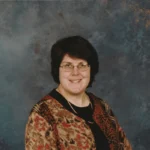Drew Briney Explores The Tension Between Technology, Magic, And Human Nature

PHOTO: Author Drew Briney, known for his imaginative fusion of sci-fi and fantasy themes.
A Master Of Genre-Blending Shares His Creative Process And Moral Inspirations
Drew Briney blends technology, magic, and morality to create immersive worlds shaped by complex characters, philosophical depth, and bold originality, challenging familiar tropes while offering readers emotionally rich and intellectually engaging stories.
Drew Briney stands as one of speculative fiction’s most inventive voices, a writer who thrives on exploring the high-stakes tension that emerges when technology clashes with magic. His body of work spans science fiction, fantasy, steampunk, thrillers, and philosophical explorations—each project marked by bold imagination and meticulous thought. Readers and reviewers have compared him to Ursula LeGuin, Elaine Cunningham, and Fyodor Dostoevsky, yet Briney delights most in a very different achievement: he can juggle more balls than any other author on the planet.
His bestselling novels demonstrate a remarkable range of narrative worlds and moral complexity. Moon 514 unites genetically engineered humans with magically empowered aliens; Unproven pits steampunk societies against a magic-dependent civilisation struggling to reclaim its power; Assassin Hunter follows a high-tech killer unravelling the truth behind memory implants; its sequel Soul Hunter provides a compelling villain origin story; while Slice introduces drug-enhanced magic systems. His success includes becoming a bestseller in YA SFF Steampunk and Action & Adventure, a recognised SFF anthologist, and a Top 5 Author at SciFiFantasyFreak.com.
Briney’s storytelling stands out for its emotional intensity, inventive world-building, and fearless exploration of moral questions that resonate deeply with modern readers.
Briney’s distinct voice is shaped not only by his imagination but also by a far-reaching academic background. After graduating Phi Kappa Phi from Brigham Young University and earning a scholarship to the J. Reuben Clark Law School, he spent sixteen years practising law before committing fully to writing. His legal experience profoundly altered his worldview and ultimately strengthened the moral depth of his fiction. As he revealed to Reader’s House, witnessing cruelty, injustice, and corruption in the legal system starkly influenced the ethical conflicts at the centre of his stories. Characters are pushed to confront hidden enemies, moral ambiguity, and impossible dilemmas—echoes of reality sharpened by his time in the courtroom.
When discussing character development, Briney credits much of his approach to his mentor, the late David Farland. By examining every scene through the perspective of each character—even those not present—he discovered how seemingly minor figures could evolve into emotionally complex allies, betrayers, or antagonists. This level of psychological and narrative layering is one of the reasons readers often describe feeling deeply immersed in his worlds.
His creativity extends to reimagining beloved fantasy tropes, such as the dragons in Unproven, which communicate not through language but through unsettling psionic images and emotions. This ambiguity, he explains, makes them more mysterious, volatile, and terrifying—disrupting expectations in a genre often shaped by familiar archetypes.
Nature, technology, and moral growth intertwine across his speculative worlds. In Moon 514, alien societies possess advanced technology rooted in nature-based magic, pushing human characters—and readers—to reconsider ideas about progress, survival, and ethical evolution. These themes emerged from his fascination with transhumanism and the duality of technological advancement: its capacity for profound good and devastating misuse.
Briney’s ability to shift between historical non-fiction and speculative fiction fuels his versatility. He approaches non-fiction with obsessive precision, reserving creativity and embellishment exclusively for his novels. This balance, he says, keeps him grounded while also allowing imagination to flourish when it is most needed.
For emerging authors tackling layered genres, he offers two essential pieces of advice: read extensively across the genres you want to merge, and prioritise compelling, emotionally authentic characters. Technical mastery matters, he says, but ultimately it is the human journey that binds it all together.
Drew Briney continues to push speculative fiction into new territory, currently working on Sea Dragon Apocalypse, an ambitious fusion of futuristic sci-fi and epic fantasy. With each project, he reaffirms his place as a writer unafraid to challenge tropes, grapple with morality, and expand the imaginative possibilities of modern storytelling.
“Fiction champions truth by expanding our minds to consider new ideas and new world-views.” – Drew Briney
Source: Reader’s House Magazine













